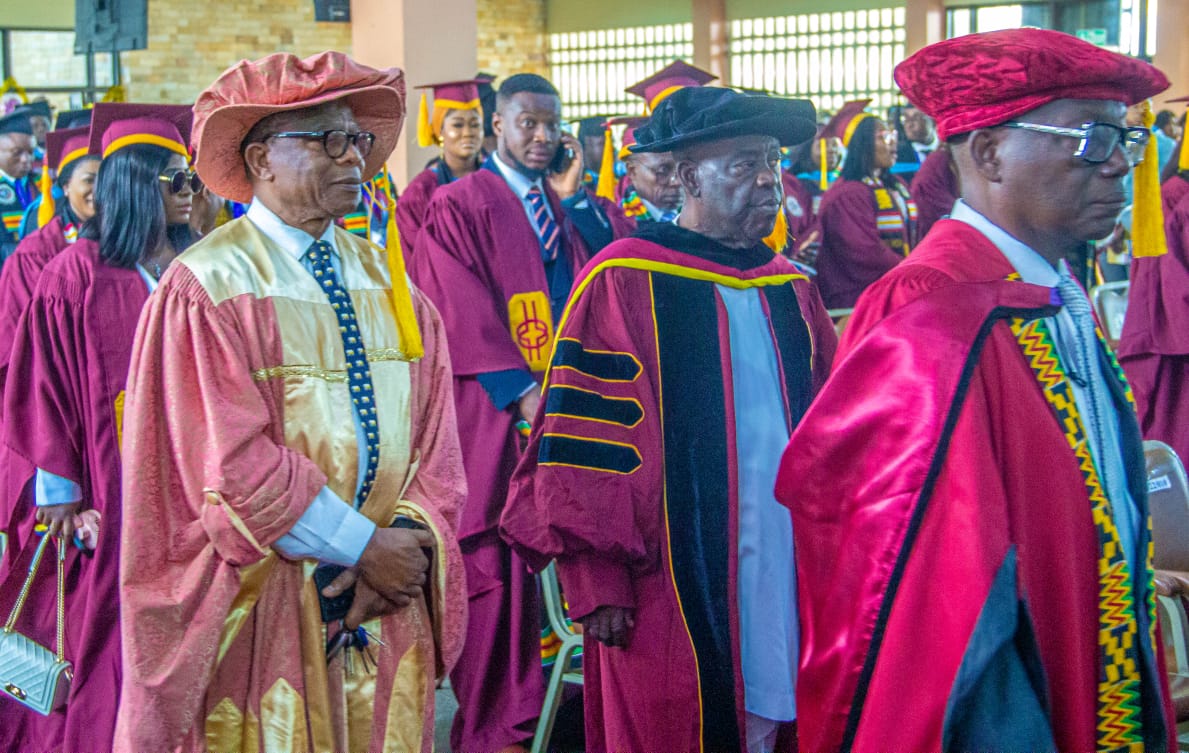
As the global coffee market evolves, Ghana finds herself at a pivotal juncture, with the potential to cultivate a thriving coffee industry that complements its more established cocoa sector.
The International Trade Centre (ITC) has stepped in as a catalyst for this transformation, employing innovative strategies with private and public sector collaborations that not only enhance the coffee supply chain but also align with multiple United Nations Sustainable Development Goals (SDGs).
The presence of ITC, boosts the efficacy of indigenous initiatives and creates a platform for us to bridge the competitive gap between ourselves and larger entities, accelerating our growth.
I introduced coffee into the Akuapem area of Ghana to serve as a catalyst for socio economic change and rural development. I created Asili Coffee Purveyors Ltd, which ITC has supported via market linkages and exposure across a wide plethora of globally recognized fairs and programs.
As a part of the introduction of coffee, I established an Agro-forestry incubator, based in Akropong Akuapem with the aim of de-risking entry into the cultivation of coffee and an intent to de-age our farmer demographic. Youth are attracted to cultivation as de-risking increases accessibility- a pillar of the risk reduction process is training and capacity building for farmers. ITC has synergized harmoniously with our regulator and primary supporter
Ghana Cocoa Board, who are key partners of the incubator program via their Seed Production Division, who work at the incubator site to produce free seedlings for farmers accompanied by subsequent trainings on best practice to improve yield quality. By fostering quality production, empowering local communities, and ensuring sustainable practices, the ITC is helping Ghana brew a brighter economic future, one cup at a time.
Building Capacity and Quality
One of the ITC’s pivotal projects in Ghana is the “Ghana Coffee Development Project,” which focuses on enhancing the quality of locally produced coffee. Through training programs that teach best practices in cultivation, harvesting, and processing, the ITC has significantly improved the skills of farmers.
Synergising with sector regulators Ghana Cocoa Board, allows for efficient delivery across coffee producing communities nationwide This focus on quality creates the avenue for Ghanaian producers to go beyond fair and average quality standards , bringing forth produce capable of commanding higher prices on international markets.
This initiative directly contributes to SDG 8 (Decent Work and Economic Growth) by creating jobs and increasing incomes for farmers and their families. Higher quality coffee also aligns with SDG 12 (Responsible Consumption and Production), as it encourages sustainable farming practices and reduces waste along the supply chain.
Empowering Women and Local Communities
The ITC recognizes that gender equality is crucial for sustainable economic growth. Many women in Ghana play essential roles in the coffee industry, from cultivation to processing. The ITC’s programs specifically target the empowerment of women through training and access to resources, helping them gain leadership roles within their communities.
By addressing gender disparities, these initiatives not only support SDG 5 (Gender Equality) but also enhance community resilience. When women thrive, families prosper, leading to improved nutrition, education, and health outcomes. Empowered women contribute to a more sustainable coffee industry, fostering a positive cycle of growth and empowerment.
Promoting Sustainable Practices
Sustainability is at the heart of the ITC’s approach. The organization promotes eco-friendly agricultural methods that combat climate change and ensure the long-term viability of coffee farming. For instance, initiatives like agroforestry help farmers maintain soil health and biodiversity, which are critical in the face of increasing climate challenges.
These practices align with SDG 13 (Climate Action) and contribute to the overarching goal of achieving sustainable development. By encouraging farmers to adopt environmentally friendly techniques, the ITC helps protect Ghana’s natural resources, ensuring that future generations can continue to benefit from the coffee industry.
Access to Global Markets
The ITC has also been instrumental in connecting Ghanaian coffee producers to international markets. Through trade fairs, market intelligence reports, and networking events, the ITC is providing farmers and cooperatives with the tools they need to tackle the complexities of global trade.
This access not only boosts local economies but also helps integrate Ghana into the international coffee supply chain. A practical example of the support ITC has provided my initiatives in these terms is in the UAE, where our fledgling Freezone trading company, Meritus Pathway is set up.
The purpose of the entity is to create an equitable pathway for meritorious producers and manufacturers in lower income countries to access the boisterous GCC markets directly, increasing effective demand and earnings potential. We have been provided consultancy services from experienced professionals to guide us in the establishment of our trade processes and compliance as well as market facilitations.
This platform is currently marketing produce from Ghana, Rwanda and Ethiopia , the vision being to eventually serve as an avenue for multiple producer countries. This move supports SDG 17 (Partnerships for the Goals) by fostering collaborations between local producers and global buyers, promoting fair trade practices that benefit both sides. By ensuring that farmers receive fair prices for their products, the ITC is helping to uplift entire communities, contributing to poverty reduction and economic stability.
The Economic Potential of Coffee
The coffee industry holds significant promise for Ghana’s economy. With the right support and infrastructure, it can diversify agricultural exports and reduce dependence on cocoa. The ITC’s strategic interventions are paving the way for this transformation, creating new jobs, enhancing food security, and fostering rural development.
Moreover, as the demand for specialty coffee continues to grow globally, Ghana has the potential to carve out a niche market. This could result in increased foreign exchange earnings and contribute to national economic growth, fulfilling the aspirations laid out in Ghana’s National Development Plan. The ITC is playing a crucial role in the revitalization of Ghana’s coffee industry.
As Ghana continues to develop its coffee sector, the efforts of the ITC serve as a model for how targeted international cooperation can foster sustainable development, ensuring that both people and the planet benefit from this rich agricultural heritage. With each sip of Ghanaian coffee, we taste the fruits of a collaborative effort aimed at a sustainable and prosperous future.
By John Nana Addo Francois
The post Feature: Sip by Sip: The ITC’s strategy for transforming Ghana’s coffee economy appeared first on The Ghanaian Chronicle.
Read Full Story




















Facebook
Twitter
Pinterest
Instagram
Google+
YouTube
LinkedIn
RSS